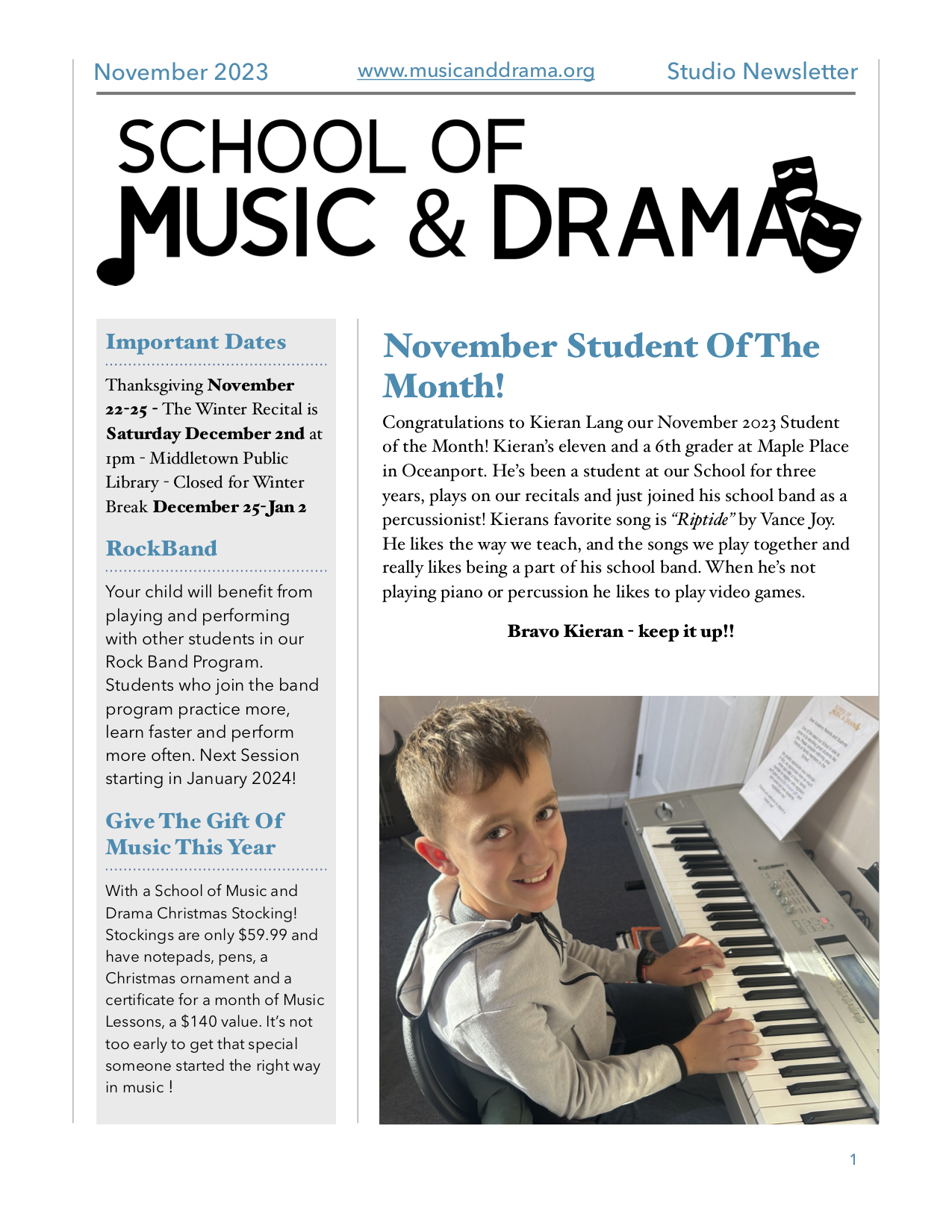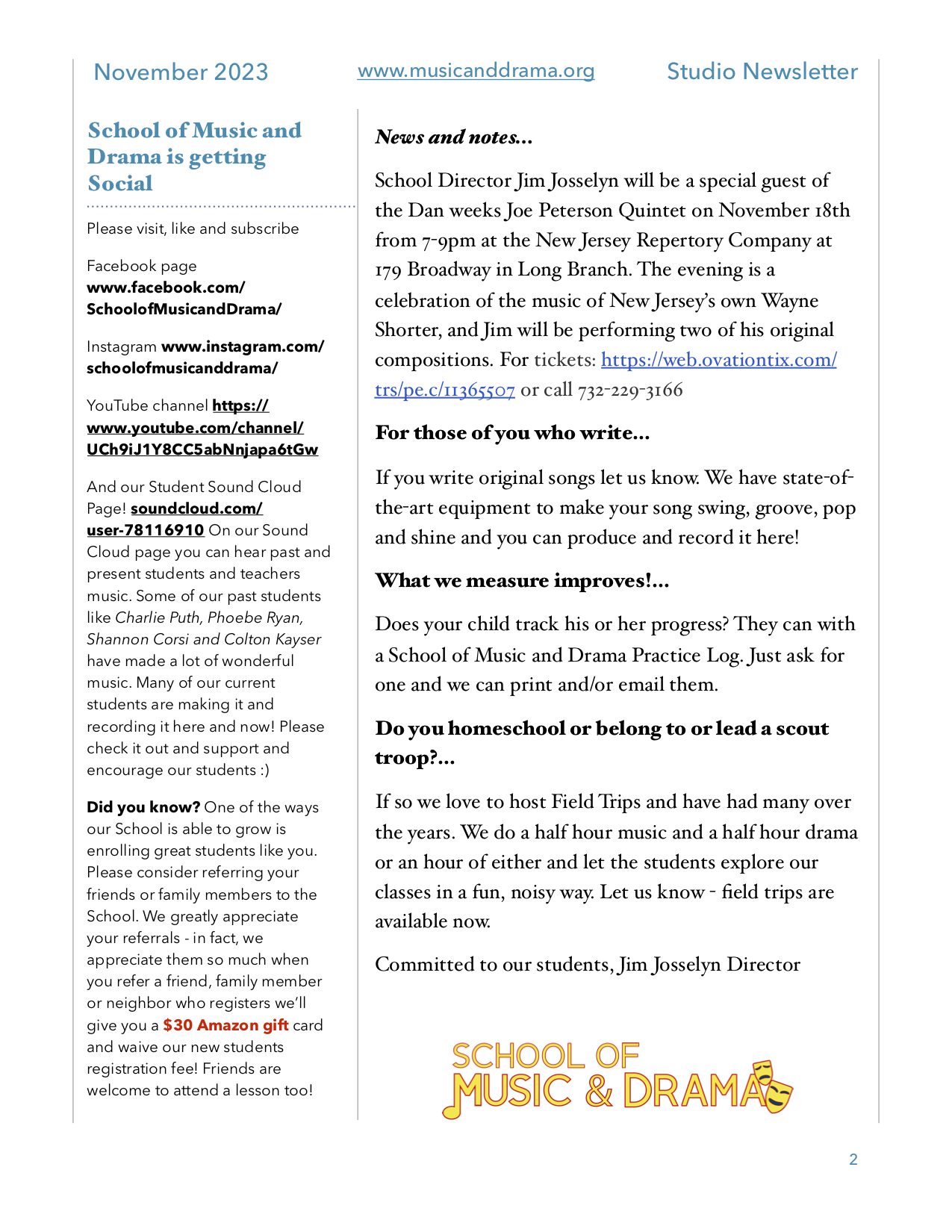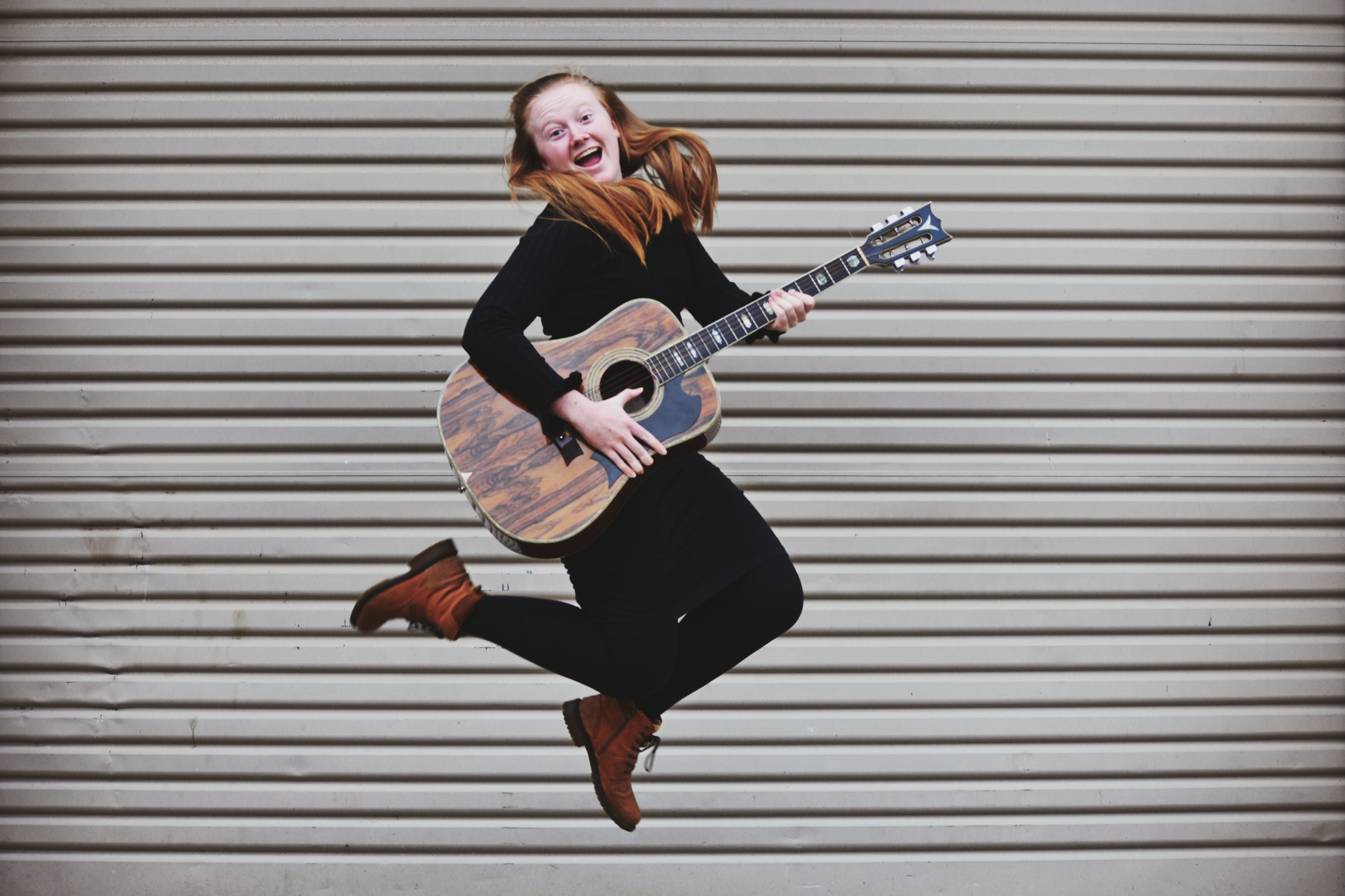November 2023 Newsletter


A few years back we had a student who took guitar lessons with us for a few months. When I talked to his mom in the waiting room she always seemed happy and his teacher gave me great feedback. The boy himself always seemed happy. You can imagine my surprise when they called to quit lessons, seemingly out of the blue. The teacher had been teaching with us for years, to great success and everyone, parents, the other teachers and above all his students loved him.
So I accepted the withdrawal and after a few days thought, let me call his mom and try to find out what went wrong. It turned out for whatever reason, I think mainly the boys severe shyness and preference for a female teacher which I hadn't known about, that this one student and this particular teacher just weren't a great fit. The boys mom didn't know it would be ok for him to switch teachers, and I think they were worried about hurting the teachers feelings. So I offered them a free trial lesson with another teacher, one of the ladies that taught here, now knowing about his shyness and how great her personality would be for him. This is an excerpt of what she wrote when he went away to school, five years later.
"Jim, thank you from the bottom of our hearts for taking such an interest in our son. He has grown tremendously with you and your staff these many, many years. We love to hear him play. Your school has been a happy place for our family. The concerts he’s played in are lovely memories we’ve recorded and often watch together. Because of your school, he is continuing his love for music at his new school. Thank you to you and everyone else for being such a positive influence for him. We will continue to sing the praises of your program in our community."
Notes like that are truly one of the greatest things about owning a studio. Fun things happen here, and important things happen here too.

Are you unsure how your child will do in music or drama or worried they won’t enjoy music lessons or drama classes? I understand how you feel because I’ve been there, as a student and a parent myself.
My story starts at seven years old at the neighborhood piano teacher’s house. The lessons were very strict and not fun. I realized in about a month I did not enjoy piano and begged my mom to let me quit. Four years later on a family trip to Mexico my mom bought me a new toy. A beat up old acoustic guitar. When we got home I started lessons. My teacher, Harold, was a great guitar player, he was fun and funny and he inspired me. I couldn’t wait for my lesson every week and I still haven’t put the guitar down.
Learning music has given me a better, richer and fuller life. I’ve earned a Master’s Degree, made many great friends and had wonderful experiences because of music. I’ve written music for television and played at Lincoln Center with Wynton Marsalis. I'm proud of all of our students, whether it's Charlie Puth or our next student at their first recital.
Music lessons and drama classes at our school are a lot like the lessons my first guitar teacher gave me. They’re fun and motivational and they let the student have a great time while getting better. With proven strategies to get through tough practice days our students learn faster.
Call or email us today so we can share the same great feeling of fun and inspiration that we’ve shared with 3,000 students so far. We can arrange a free first lesson at a day and time that works best for you.
Jim Josselyn, Director, School Of Music and Drama
p.s. Like I said at the beginning, I was a nervous parent too. My kids studied voice, piano, saxophone, guitar and drama at our school for years and did many great recitals. They will love the arts for a lifetime :)

Here's the second video in our series of fun, free (and shhhh - educational) videos for our former, current and future students. This one features a practice log, one of the best ways to manage your practice time and get better faster :)
If you or your child would like a copy of our practice log just email us!
If you have any questions, comments or suggestions for a future video let us know.
Please "tag us" on social media.
https://www.facebook.com/SchoolofMusicandDrama/
https://www.youtube.com/user/jimsmusicstudio
Comment on the you tube video, and share your thoughts.
P.S. We are working on hosting a Virtual Teacher/Student Recital - if you'd like to participate and play or sing a song or do a dramatic monologue please let us know. We'll do it on videoconference live and can shoot for next week.